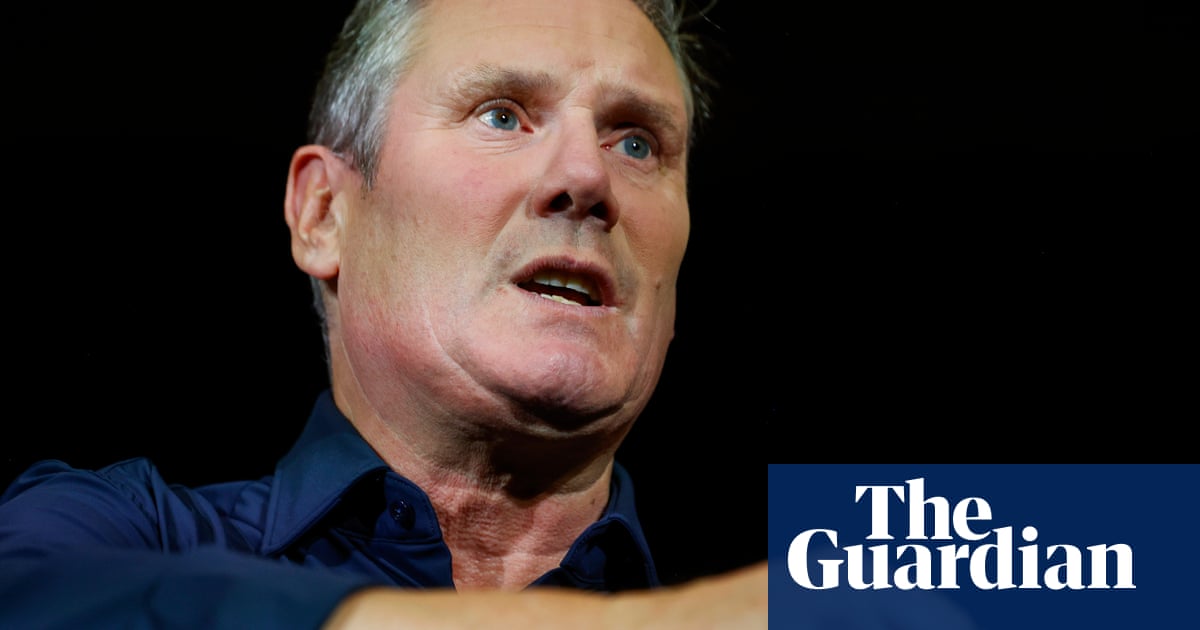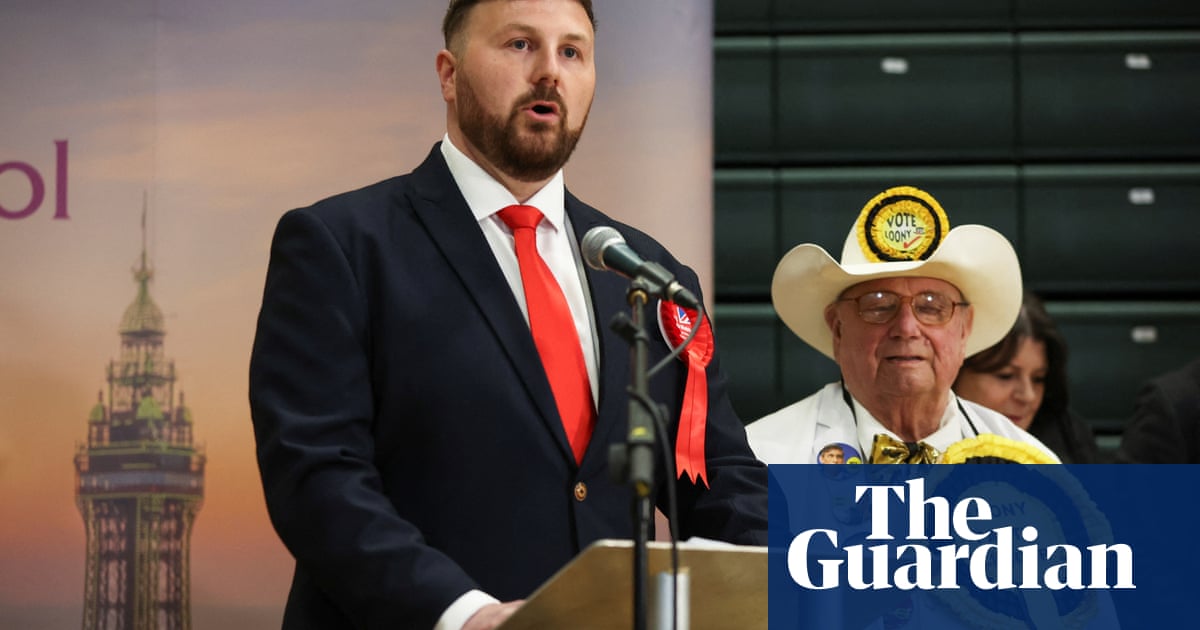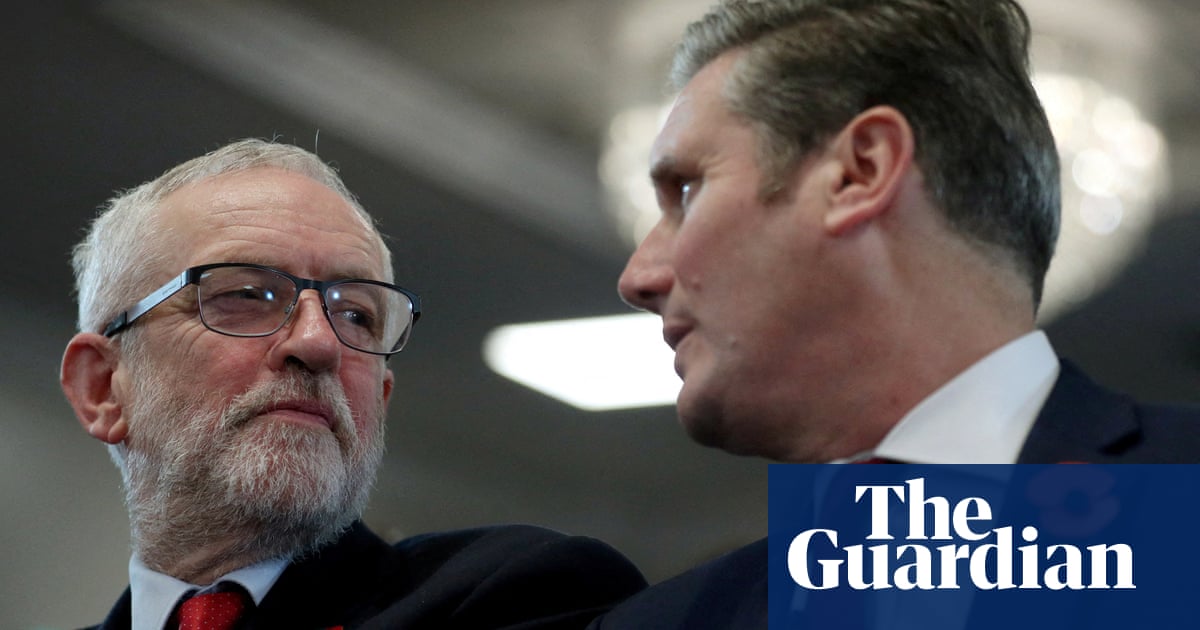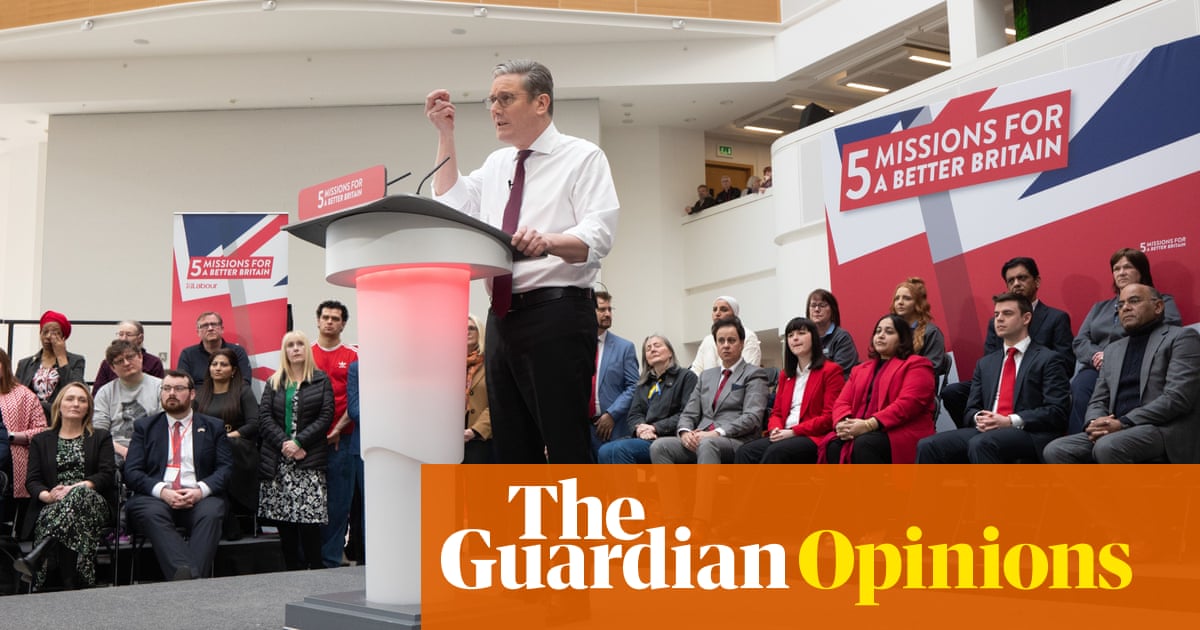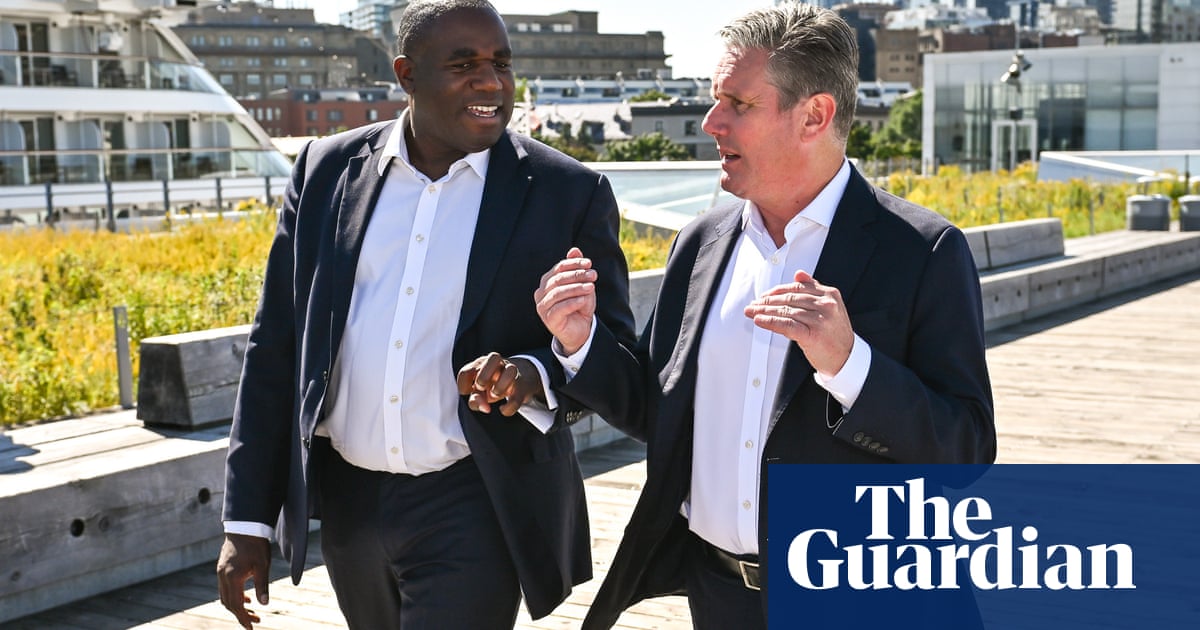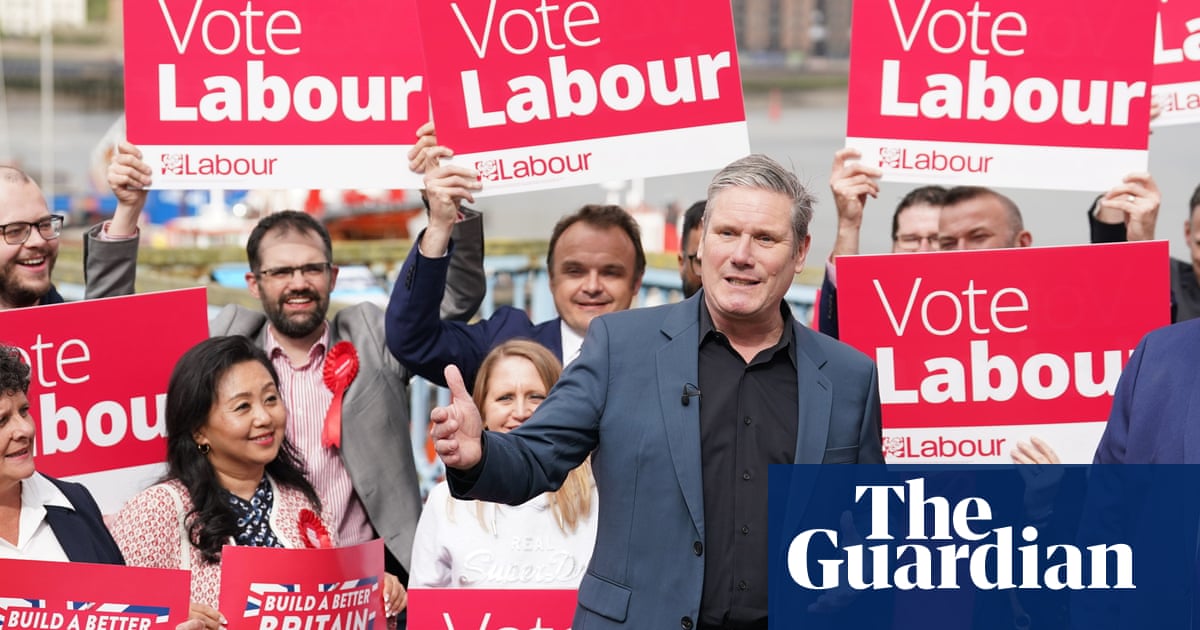
Keir Starmer has said the Labour party is on track to win the next general election, after taking control of key councils in the English local elections, including Medway, Plymouth and Stoke-on-Trent.
Based on results counted early on Friday morning, the Labour leader said the party was heading for a result that if repeated across the country at a general election would give it an eight-point lead over the Conservatives.
Labour insisted this would be enough to win an election, taking into account a projected collapse of the Scottish National party. But it fell short of the 10-point lead experts said Starmer would need to feel confident of becoming the next prime minister.
Starmer said: “These are the key battlegrounds as we go into the next election. And make no mistake, this means that we are on course for a Labour majority of the next election – a very, very good set of results for us.”
John Curtice, a professor of politics at the University of Strathclyde, said the Conservatives could be heading for total losses of about 1,000 councillors – at the top of the range of what experts had predicted. An analysis by Sky News based on the early results showed that the party was losing heavily to Labour in areas that voted to leave the EU, but more to the Liberal Democrats in remain areas.
The prime minister, Rishi Sunak, said: “The message I am hearing from people tonight is that they want us to focus on their priorities and they want us to deliver for them. And that’s about halving inflation, growing the economy, reducing debt, cutting waiting times, stopping the boats.”
Greg Hands, the Tory party chair, told BBC Radio 4’s Today programme: “I’m disappointed for the Conservative councillors who have lost their seats but equally it’s not been a resounding result for Labour under Sir Keir Starmer.”
Sunak’s allies insisted the results were a judgment on his predecessors, Boris Johnson and Liz Truss, rather than the current prime minister. Gavin Barwell, who was chief of staff to Theresa May, said: “The problem is not actually the current government, the problem is the damage that Boris Johnson and Liz Truss did to the Conservative brand.”
But there are also signs of discontent at Sunak’s leadership from within the party.
Alan Jarrett, the outgoing Conservative head of Medway council, which Labour won for the first time since it was created in 1998, told Today that Downing Street needed to “get a grip”. He added: “Excessive housing requirements are unpopular locally. And a big issue, really big issue here, is access to GP provision.”
David Campbell Bannerman, the Conservative former MEP and a key ally of Johnson, said the party should consider reinstating the former prime minister. “A lot of our members still like and rate Boris, as do many of the public,” he said. “And given the scale of the challenge ahead, we shouldn’t rule [bringing him back as party leader] out as an option longer-term.”
The last time the same council seats were contested was in May 2019, when the Tories performed poorly under May as she struggled with Brexit, and Labour under Jeremy Corbyn also suffered.
The Conservatives lost more than 1,300 council seats and majority political control of 44 councils, meaning they had less to lose on Thursday than they might have done.
By Friday morning, Labour had secured good results in swing seats it had focused heavily on winning, taking control of Plymouth council from the Conservatives and gaining the key “red wall” city of Stoke-on-Trent from no overall control.
The party needed five gains to take overall control in Plymouth, which had been led by a minority Conservative administration, and managed to make six gains on the night.
Lifelong Tory supporters in Plymouth had been among voters left seething at a decision earlier this year by the council – then controlled by a Conservative-minority administration – to fell 110 trees in the centre of the city, prompting a public outcry.
In Stoke-on-Trent, Tory councillors suffered because at the end of 2022 the Conservative party as a brand was “certainly damaged”, the Tory former minister Jonathan Gullis said.
He added: “I do think, though, that people are starting to want to listen to us again. They believe the prime minister is a man of action. They like the five pledges.”
Among other results, Tamworth, Brentford and North West Leicestershire councils fell from the Conservatives to no overall control, while Labour replaced them as the largest party in Hartlepool and Worcester. Bolton will remain under no overall control, but Labour will become the biggest party.
In Tamworth – the seat of the scandal-hit former Tory whip Chris Pincher – Labour made seven gains, pushing the council from Conservative into no overall control. In Hertsmere, where the deputy prime minister, Oliver Dowden, is MP, the Tories lost control, with 13 councillors voted out while Labour gained seven and the Lib Dems six.
In Hull, Labour’s attempts to regain the council from the Liberal Democrats failed, with Ed Davey’s party tightening its grip on the authority. The Lib Dems also won Windsor and Maidenhead, bolstering the party’s belief that it can make gains at the next election in the Tories’ southern heartlands.
The Liberal Democrat deputy leader, Daisy Cooper, said: “I have knocked on countless doors in recent weeks and heard real anger and frustration from voters who are sick and tired of being taken for granted by this Conservative government.”
The contests were the first to be fought under new rules requiring voters to carry photographic ID, and the Electoral Commission said “regrettably” some people were turned away from polling stations as a result.




